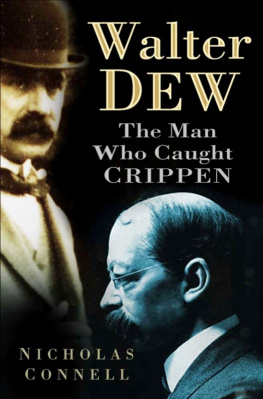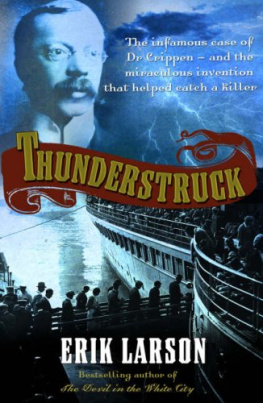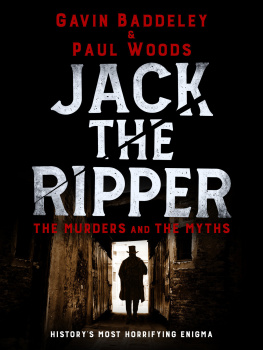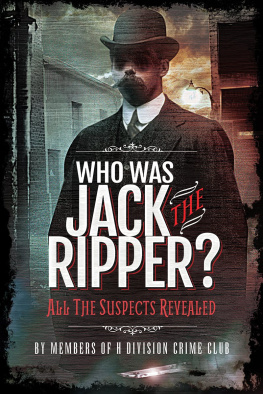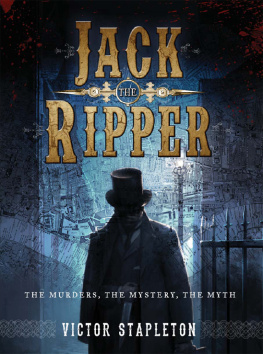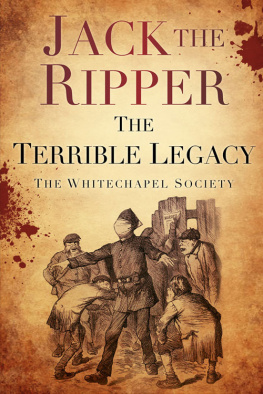
Walter DEW
Walter DEW
The Man Who Caught C RIPPEN
Nicholas Connell

First published in the United Kingdom in 2005 by
Sutton Publishing Limited
The History Press
The Mill, Brimscombe Port
Stroud, Gloucestershire, GL5 2QG
www.thehistorypress.co.uk
This ebook edition first published in 2013
All rights reserved
Nicholas Connell, 2005 2013
The right of Nicholas Connell to be identified as the Author of this work has been asserted in accordance with the Copyrights, Designs and Patents Act 1988.
This ebook is copyright material and must not be copied, reproduced, transferred, distributed, leased, licensed or publicly performed or used in any way except as specifically permitted in writing by the publishers, as allowed under the terms and conditions under which it was purchased or as strictly permitted by applicable copyright law. Any unauthorised distribution or use of this text may be a direct infringement of the authors and publishers rights, and those responsible may be liable in law accordingly.
EPUB ISBN 978 0 7524 9544 6
Original typesetting by The History Press
For Mum
Contents
Acknowledgements
I would particularly like to thank Jon Ogan, who lent me his own copy of Walter Dews autobiography for several years while I was researching and writing this book. I would also like to thank the following for their invaluable help: Maggie Bird, Sarah Bryce, Alex Chisholm, Stewart Evans, Christopher Feeney, Stuart Goffee, Jonathan Goodman, Brian Gravestock, the late Melvin Harris, Peter Lovesey, Gary Moyle, Phil Sugden and Richard Whittington-Egan.
The staff of the following archives and libraries were all unfailingly helpful: the British Library, The British Library Newspaper Library, Churchill Archives Centre (Churchill College, University of Cambridge), Hertfordshire Archives and Local Studies, Hertfordshire Central Resources Library, Islington Central Library, London Metropolitan Archives, Madame Tussauds Archives, Metropolitan Police Records Management Branch, the National Archives, Northamptonshire County Record Office, Northamptonshire Studies Collection, Tower Hamlets Local History Library, University College London, West Sussex County Record Office and Worthing Library.
The work of Inspector Dew is worthy of close study.
L.A. Perry MD, Crippen,
from Crime and Detection , vol. II
Prologue: Walter Dews Early Days
So commenced my career in the finest police force in the world.
Walter Dew
Walter Dew, the man who was to capture the most infamous murderer of the early twentieth century, was born on 7 April 1863 at Far Cotton, a hamlet in the parish of Hardingstone, some two miles south-east of the county town of Northampton. Hardingstone had a railway station on the London & North Western line and Dews Herefordshire-born father, also named Walter, worked as a guard for the railway. His Irish mother Eliza would eventually have ten other children. When Dew was ten years old the family moved to London.
Dew was no scholar. He would later recall that I detested school, and was an absolute dud there, and promptly left when I attained the ripe age of thirteen. He got a job at a solicitors office off Chancery Lane, the result of which was that Dew frequently had to attend the old Law Courts at Westminster. The job only lasted a year. He left after he got fed up. Despite the boredom that office work brought on he had always enjoyed attending court and he never grew tired of listening to the cases.
The young Dews next job was as a junior clerk with a large seed-merchants in Holborn. This only lasted for a few months. One lunchtime he spotted a fire on the roof of the Central Criminal Court (the Old Bailey) and rushed off to the fire station and raised the alarm. Dew then stayed to watch the fire being put out, which made him late back to work and resulted in him being sacked. Little could he have envisaged that, some thirty years later in that same court, he would be watched by the eyes of the world when he gave evidence in one of the most sensational trials ever to be held there.
Following in his fathers and brother Georges footsteps Dew took a job with the London & North Western Railway. He had always loved the railway and it was his ambition to become a guard. Dew stayed with the railway for some years and said that he enjoyed every day of it. When he was nineteen it was suggested to him (it is not recorded by whom) that he should join the Metropolitan Police. This struck Dew as an unusual suggestion as, for some strange reason or other, I had an instinctive dread of the London policeman, which lasted more or less until I became one myself.
Overcoming his fears, Walter Dew applied to join the Metropolitan Police force. He doubted he would be accepted, because he was very slim and boyish looking in those days. However, Dew passed his medical at Scotland Yard and was sworn in and given the warrant number 66711. For his first ten weeks he was forced to stay in seedy digs at a common lodging house while he underwent drill training at Wellington Barracks. He was paid a modest 15 s a week, but that rose to 24 s when he was posted to Paddington Green police station in X Division, Kilburn, in June 1882.
On 15 November 1886 Dew married coachmans daughter Kate Morris at Christ Church, Notting Hill. They moved to Tinnis Street, Bethnal Green, and would eventually have five children: Walter (b. 1887), Ethel (b. 1891), Stanley (b. 1893), Kate May (b. 1895) and Dorothy Bertha (b. 1903). Another son, Raymond, died in infancy in 1891.
Dew remained at Paddington Green for five years, where he made a good impression on his superiors. He had quickly taken to his new profession, made numerous arrests and received rewards and commendations from magistrates and judges. Consequently, in June 1887 he was made a plain-clothes detective in the Criminal Investigation Department (CID), where he would deal exclusively with crime, instead of the high-profile public policing duties he had undertaken when in
uniform.
The young detective was transferred to H Division, Whitechapel. He was somewhat apprehensive about the move:
From Paddington and Bayswater I was sent to a district which, even before the advent of Jack the Ripper, a year later, had a reputation for vice and villainy unequalled anywhere in the British Isles.
I had attained my first ambition as a police officer, being now a member of the famous Criminal Investigation Department a detective officer. But the natural elation with which I viewed my promotion was tempered by my knowledge of my neighbourhood to which I had been sent to win my detectives spurs.
I knew that I might have to spend many years there. For myself I did not care so much. My chief concern arose from the fact that I had just married, and the thought of taking my wife to live in that hot-bed of crime filled me with foreboding.
Whitechapel, Spitalfields and Shoreditch were now my hunting-ground, with hundreds of criminals of the worst type as my quarry.
Whitechapel in those days was full of slums in which vice of all kinds was rampant. Sordid narrow streets, still narrower courts, filthy and practically unlighted.
Woe betide any innocent wayfarer venturing alone down any of those dark and sinister passages.
So bad was the reputation of Flower-and-Dean Street that it was always double-patrolled by the police. A single constable would have been lucky to reach the other end unscathed.
Crime was rampant, but it did not go unchecked. A study of the Old Bailey calendar of the time would confirm this. I had the pleasure of seeing scores of them sentenced to long terms of imprisonment and lashes with the cat.
Next page
